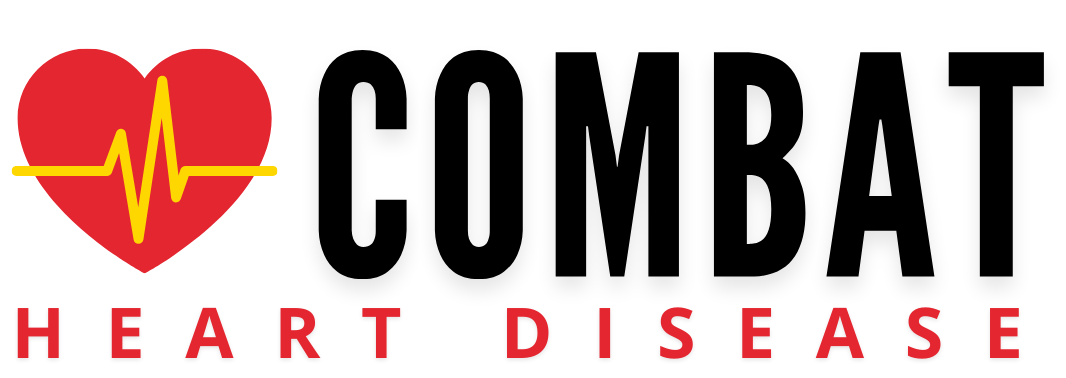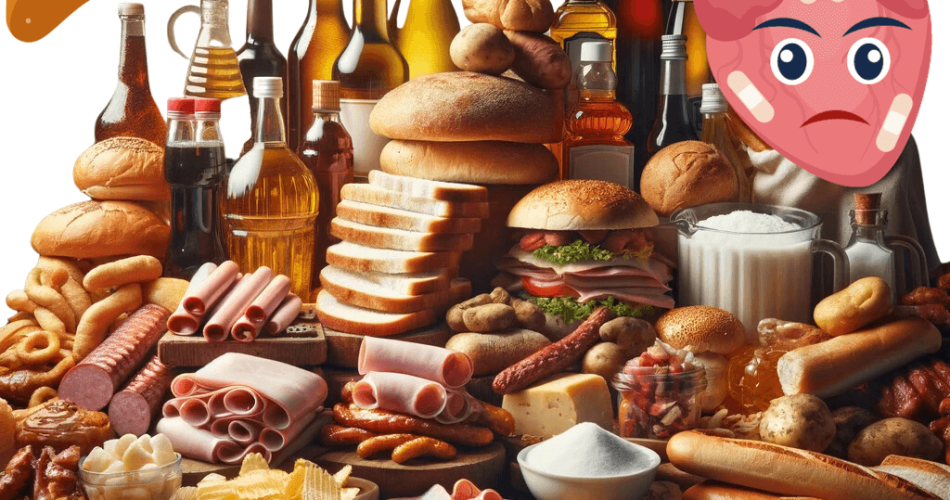Hey there, fellow heart health warriors! Today, I’m diving deep into a topic that’s close to my heart—literally. We’re going to unravel the mysteries behind the 10 worst foods that are secretly fueling fatty liver issues and blocking our arteries like a bad traffic jam. As your heart-healthy guide, I’m here to give you the lowdown on these dietary culprits, backed by science, research, and statistics, all while keeping it as engaging as your favorite chat over coffee.
Understanding Fatty Liver and Artery Health
Before we march into battle against these sneaky foods, let’s set the stage with a bit of background.
The Science Behind the Conditions
Fatty liver disease, especially the non-alcoholic kind, is like a ninja—silent and dangerous. It’s the build-up of extra fat in liver cells that isn’t caused by heavy drinking. On the flip side, clogged arteries occur when fatty deposits, or plaques, build up in your arteries, narrowing them down and causing a world of trouble.
The Impact of Diet on Liver and Artery Health
It’s not all doom and gloom, though. The silver lining is that diet can be a game-changer in managing these conditions. What we eat can either be our greatest ally or our worst enemy in this health crusade.
Stay tuned, as I’ll take you through each of the troublesome ten foods and then equip you with practical tips to combat them, keeping our livers lean and arteries clear!
The Troublesome Ten: Foods to Avoid
Let’s get down to the nitty-gritty. Starting from the least to the most hazardous, these are the foods we need to call out:
10. Red and Processed Meats

Beloved for their savoriness, red and processed meats like steaks, sausages, and bacon are staples at many meals. Yet, they bring with them a host of health challenges.
Saturated Fats and Preservatives: A Toxic Combo
A standard 100-gram serving of cooked ground beef can pack about 8.5 grams of saturated fat. Processed meats compound the problem with chemical preservatives such as sodium nitrate, which not only contribute to arterial clogging but also potentially harm liver cells.
Alarming Statistics and Health Risks
Research published in the “Journal of Hepatology” indicates a 17% increased risk of non-alcoholic fatty liver disease from regular consumption of these meats. The high cholesterol content, sometimes 88 mg per 100 grams in items like sausages, exacerbates arterial plaque buildup, paving the way for heart disease and strokes.
Seeking Healthier Alternatives
To mitigate these risks, opt for leaner meats like chicken or turkey breasts, which contain much less saturated fat—about 0.5 to 1 gram per 100 grams. Plant-based proteins such as lentils and tofu can provide robust nutrition without the adverse effects on liver and heart health.
9. Starchy Whites
Our diets often include a hefty portion of starchy whites, like white bread, pasta, and rice. But these refined carbs are not as benign as they seem.

From Refined Flours to Sugar Spikes
These foods quickly break down into sugars, causing blood glucose and insulin levels to surge. This not only burdens the liver with excessive fat storage but also amplifies the risk of insulin resistance, a precursor to type 2 diabetes.
The Visceral Fat Factor
The “American Journal of Clinical Nutrition” reported a 23% increase in the risk of non-alcoholic fatty liver disease linked to high consumption of refined carbs. These foods also significantly contribute to visceral fat accumulation, thereby heightening the risk of heart diseases.
Embracing Whole Grains for Better Health
Switching to whole grains can counter these negative impacts. They help regulate sugar absorption and provide dietary fiber, which is essential for digestive and heart health.
8. Salt Overdose
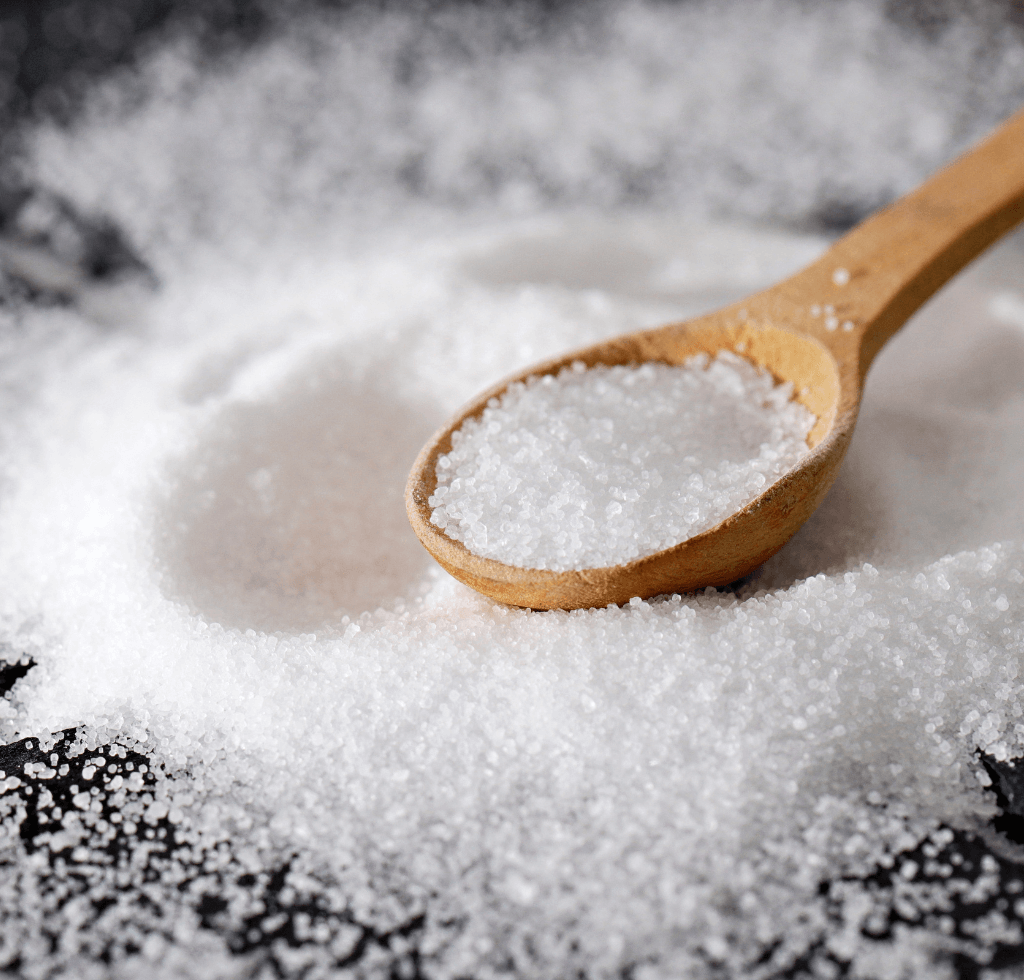
Salt is crucial for health, but its excessive consumption has become a silent epidemic, particularly due to the rise of processed and fast foods.
Water Retention and Blood Pressure Woes
High salt intake leads to water retention, raising blood pressure and burdening the heart. Excess salt can also interfere with the liver’s ability to metabolize fats, leading to fat accumulation.
Studies Highlighting the Impact on Liver Health
“The Journal of Clinical Investigation” found that high salt diets are associated with the development of fatty liver disease, beyond just weight gain or overeating.
Sodium Intake: The Current Picture
The average high-salt diet often exceeds 3,400 milligrams of sodium daily, well over the recommended 2,300 milligrams, leading to increased arterial stiffness and hypertension.
Steps Towards Sodium Balance
Reducing salt intake to protect the liver and heart involves avoiding high-sodium processed foods, seasoning with herbs and spices instead of salt, and choosing fresh ingredients.
7. Harmful Cooking Oils
The Omega-6 Predicament
Cooking oils such as soybean, corn, and palm oil have become ubiquitous in kitchens worldwide. Despite their popularity, these oils have a high content of omega-6 fatty acids, which, in excess, can trigger inflammatory responses. Such inflammation puts the liver and arteries under stress and contributes to chronic diseases.
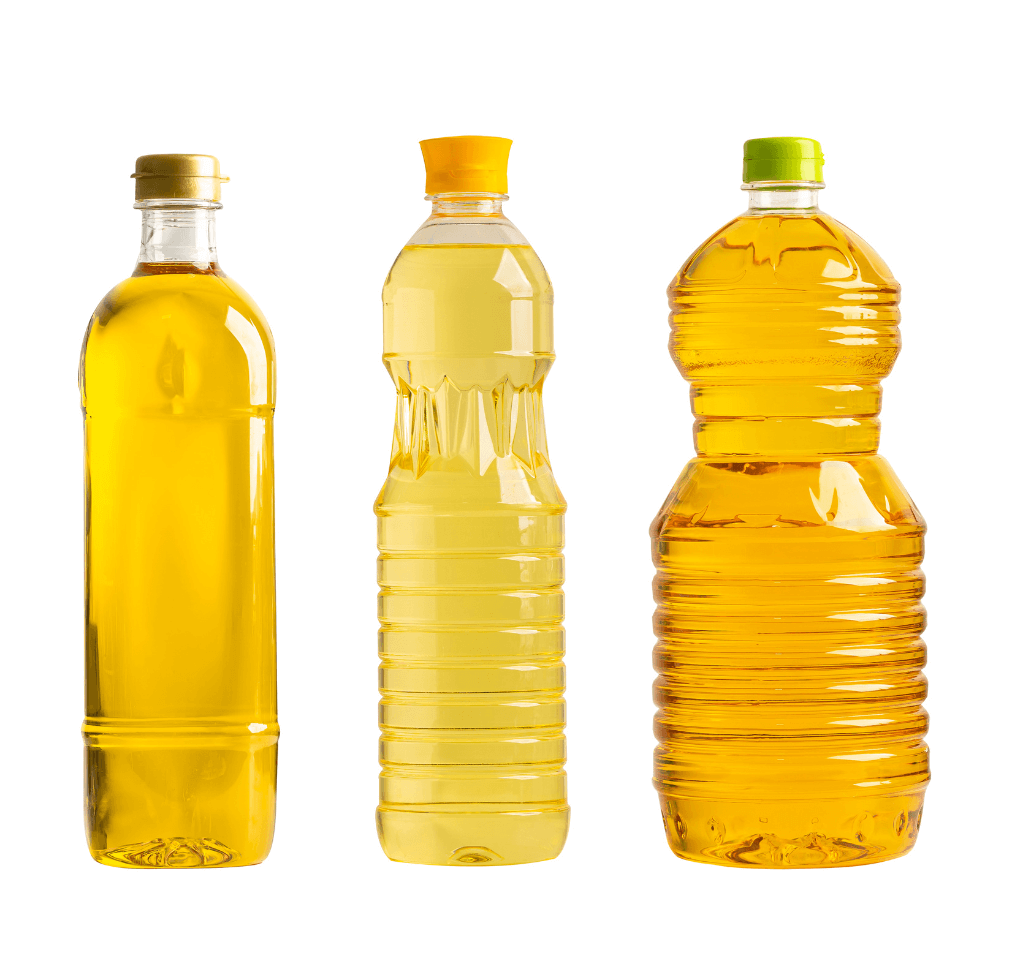
Understanding the Research
The American Heart Association has highlighted concerns regarding an imbalance between omega-6 and omega-3 fatty acids. Excessive consumption of omega-6 can increase the risk of heart disease, underscoring the need for a balanced dietary approach.
Making the Healthy Switch
Switching to oils like olive or canola, which boast higher omega-3 content, can slash heart disease risk by up to 10%. Choosing the right type of fat is as crucial as the quantity, with a balance tilting towards omega-3 rich oils being ideal for health.
6. Junk Food Delights
Unsavory Consequences of Savory Snacks
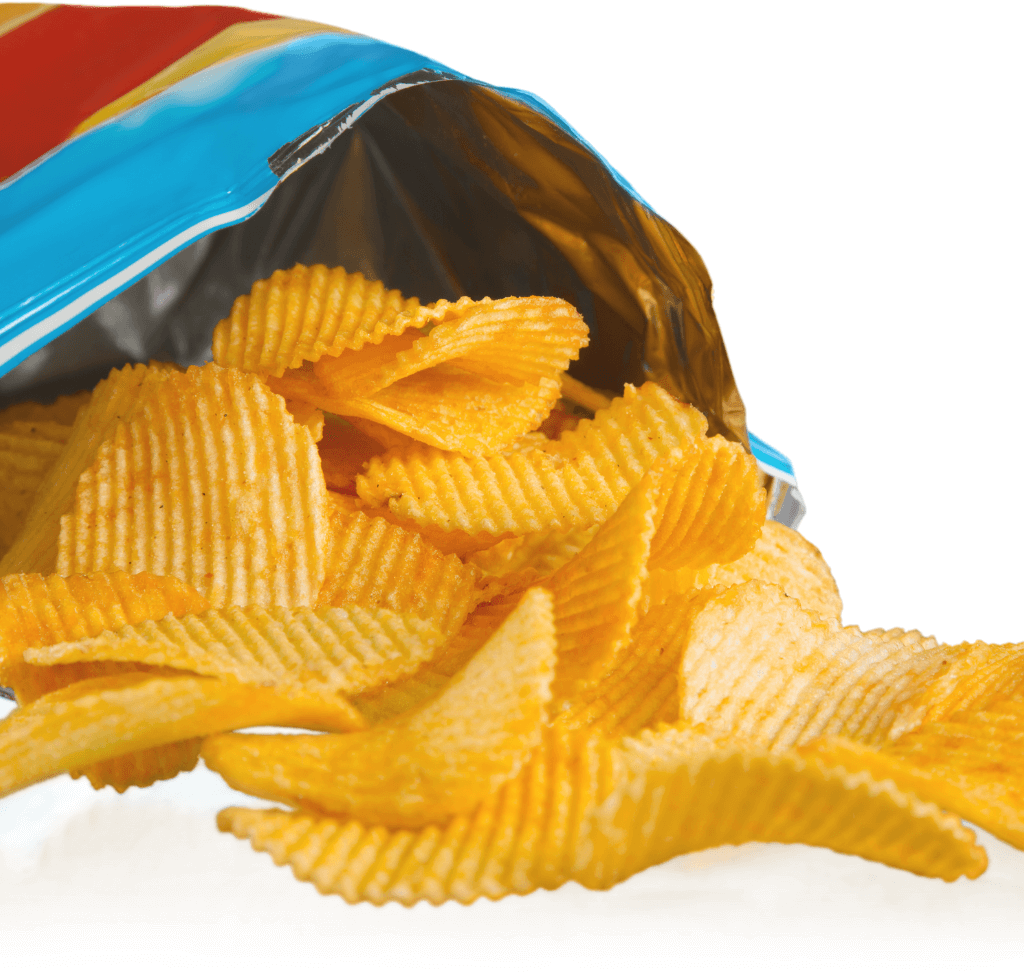
Chips, cookies, and sugary sodas are packed not only with unhealthy fats and sugars but also with harmful additives. These elements work in tandem to increase the risks of non-alcoholic fatty liver disease and cardiovascular diseases.
Cholesterol Climbs with Junk Food
Data from the New England Journal of Medicine suggest a stark rise in LDL cholesterol from regular junk food consumption, by as much as 14%, which is a direct route to arterial plaque formation and heart disease.
Snack Smart for Liver and Heart Health
Adopting healthier snacking habits with nuts, fruits, and whole grains not only satisfies cravings but also nourishes the body, helping to maintain both liver and heart function.
5. Sugar Overload
The Hidden Sugar Hazard
It’s not just the obvious sugar in sweets; it’s the high-fructose corn syrup hidden in beverages and processed foods that is particularly harmful. These sugars, in large amounts, pose a severe threat to liver and cardiovascular health.

Alarming Statistics on Sugar and Liver Health
The Journal of Hepatology warns that diets with more than 10% of total calories from added sugars greatly elevate the risk of non-alcoholic fatty liver disease by up to 30%.
Inflammation and Insulin Resistance
Excessive sugar intake also promotes inflammation and increases the risk of insulin resistance. This can be a precursor to Type 2 diabetes, further complicating cardiovascular and liver health.
Natural Sweetness as a Solution
Opting for natural sweeteners and fruits while avoiding sugary processed foods can significantly improve liver and heart health, reducing the risks associated with sugar overload.
4. Factory-Made Consumables
Trans Fats and Preservatives: The Unseen Enemies

Packaged snacks and ready-to-eat meals often contain preservatives, artificial additives, and hidden trans fats that are detrimental to the liver and heart.
Trans Fats’ Impact on Health
The American Journal of Clinical Nutrition points out that diets high in trans fats can boost the chances of developing non-alcoholic fatty liver disease by 20-30%. These fats also disturb cholesterol levels, further endangering heart health.
The Shift to Whole Foods
Choosing whole, unprocessed foods over factory-made products is not merely a dietary preference but a crucial health protection strategy. This shift helps shield the liver and heart from the dangers of preservatives and additives.
3. Fried Foods
Unhealthy Oil Absorption
Fried foods are notorious for their unhealthy oil content. Cooking them involves immersing these foods in oils that are often reused, which can result in the formation of unhealthy compounds. These substances make the liver’s job of detoxification much harder and can contribute to the narrowing of arteries over time.

Frying and Heart Disease
The repeated use of the same oil for frying leads to the creation of trans fats, which have been directly linked to increased heart disease risk. Research published in “The Journal of Nutrition” connects the dots between the routine ingestion of fried foods and heightened heart disease risk due to the negative impact these fats have on blood lipid profiles and inflammation markers.
Alternatives to Frying
Instead of frying, adopting other cooking methods like baking, grilling, or steaming not only reduces health risks but also preserves the natural flavors of food, providing healthier and equally delicious alternatives.
2. High-Fat Dairy Products
Saturated Fats and Heart Health
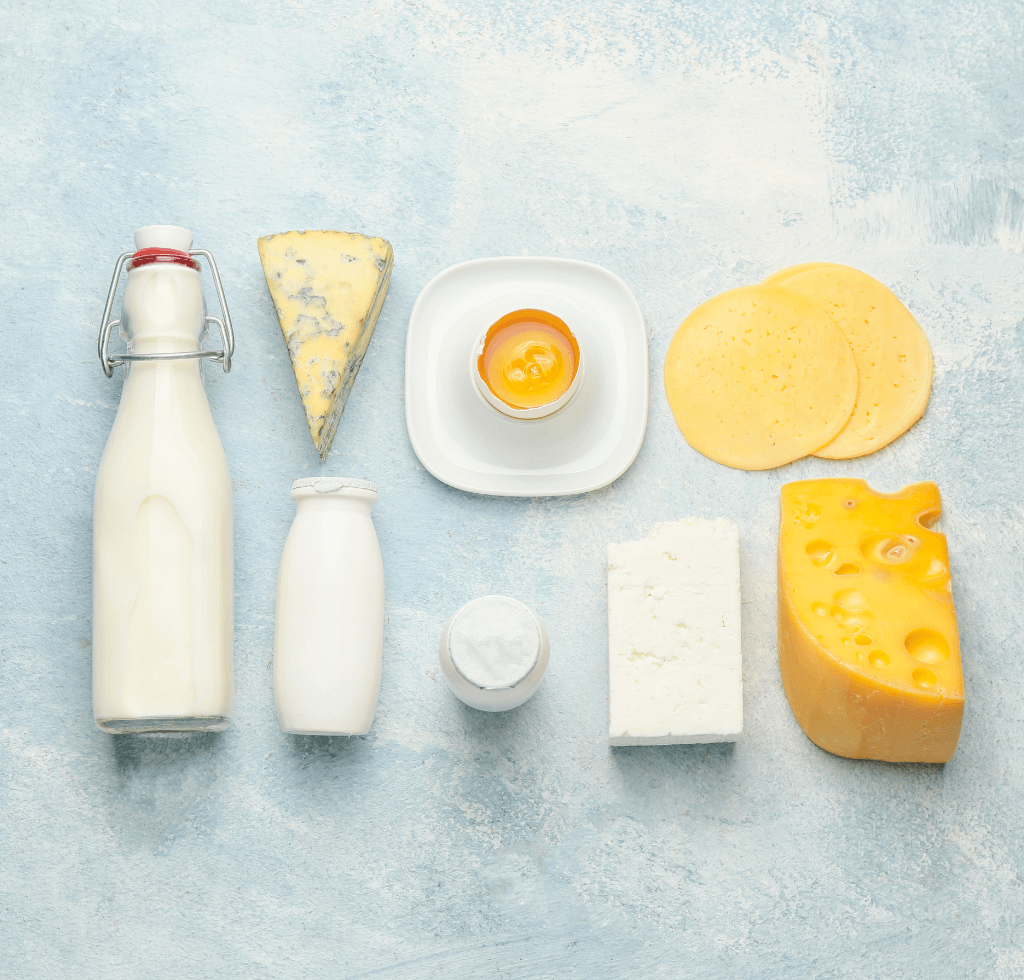
While high-fat dairy products offer essential nutrients, their saturated fat content can adversely affect heart health. Diets high in saturated fats have been shown to significantly increase levels of LDL cholesterol, leading to the formation of arterial plaques.
Impact on Liver Health
According to a study in the “European Journal of Nutrition,” a high intake of saturated fats from dairy is associated with a considerable increase in liver fat content. This spike in liver fat puts individuals at a much greater risk of developing non-alcoholic fatty liver disease.
Dairy Alternatives for Better Health
Making a switch to low-fat or plant-based milk alternatives can reduce saturated fat intake, helping to maintain a more favorable cholesterol balance and supporting liver and heart health.
1. Booze Overindulgence
Alcohol’s Wrecking Ball Effect
Alcohol, when consumed in excess, can wreak havoc on the liver, causing a range of issues from alcoholic fatty liver disease to cirrhosis. Its excessive intake also has dire consequences for the heart, increasing the risk of various cardiovascular diseases.

Sobering Statistics and Recommendations
Highlighting the risks, the CDC attributes a significant number of deaths to liver cirrhosis, often tied to alcohol abuse. Moreover, a landmark study in “The Lancet” indicates that consuming over 100 grams of alcohol weekly can drastically increase mortality rates.
Calories Without Nutrients
Alcohol is packed with empty calories that contribute to weight gain, exacerbating the risk for both liver and heart diseases. Its interference with nutrient absorption further compounds these risks.
Moderation is Key
To mitigate these risks, it is recommended to adhere to the American Heart Association’s guidelines of moderate alcohol intake. Enjoying drinks responsibly and incorporating alcohol-free days into one’s weekly routine can go a long way in protecting one’s liver and arterial health.
Practical Tips for a Healthier Diet
Adopting a healthier diet is not just a matter of choosing the right foods; it’s about making sustainable lifestyle changes that can lead to long-term benefits. Here are some practical tips to help you on this journey:
- Read Labels: Become an informed consumer by reading nutrition labels. Look for lower amounts of trans fats, saturated fats, and sugars. Choose products with simple, recognizable ingredients.
- Cook at Home: Cooking meals at home gives you control over ingredients and cooking methods. Use heart-healthy oils like olive oil, and incorporate plenty of fruits, vegetables, and whole grains into your meals.
- Mindful Eating: Eat slowly and without distraction, listen to your hunger cues, and learn to stop eating when you’re full.
- Plan Meals: Plan your weekly menu ahead of time. This can help you make healthier choices and avoid impulsive decisions when you’re hungry.
- Portion Control: Use smaller plates to control portion sizes and prevent overeating.
- Stay Hydrated: Drink plenty of water throughout the day, and be mindful of the sugar content in drinks.
- Snack Wisely: Choose healthy snacks like nuts, seeds, or fruits instead of chips or candies.
- Balance Your Fats: Reduce intake of unhealthy fats and replace them with healthier fats found in fish, nuts, and seeds.
- Limit Alcohol: Keep alcohol consumption within recommended limits to protect your liver and heart.
- Seek Professional Advice: If you need help making dietary changes, consult a dietitian or a healthcare provider.
Conclusion
Embracing a healthier diet is crucial for maintaining optimal liver and heart health. It requires a mindful approach to everyday food choices—limiting the intake of harmful substances like saturated fats, trans fats, and excessive sugars while enriching the diet with nutrient-dense foods. Remember, small, consistent changes can lead to significant health improvements over time. By following the practical tips outlined above, you can take definitive steps towards a healthier, more vibrant life.
For more insights, please watch this informative video:
FAQs
Q: How often can I indulge in fried foods or high-fat dairy?
A: While it’s okay to enjoy these foods occasionally, it’s important to limit their frequency. Aiming for moderation, such as enjoying these foods once a week or less, can help minimize health risks.
Q: Is it possible to reverse the damage done by an unhealthy diet?
A: In many cases, adopting a healthier diet can lead to improvements in liver fat, cholesterol levels, and overall heart health, potentially reversing some of the damage caused by an unhealthy diet.
Q: Can I drink alcohol at all if I’m concerned about liver health?
A: Moderate alcohol consumption is key. For some individuals with specific health concerns or a history of liver disease, abstaining from alcohol may be advisable. Consult your healthcare provider for personalized guidance.
Q: Are all fats bad for liver and heart health?
A: No, not all fats are bad. Unsaturated fats, such as those found in olive oil, nuts, and fish, can be beneficial for both heart and liver health when consumed in moderation.
Q: Can ‘diet’ or ‘low-fat’ products always be trusted as healthy options?
A: Not necessarily. Some ‘diet’ or ‘low-fat’ products may compensate for taste by adding more sugars or artificial additives. It’s important to read the nutrition label and not just rely on marketing claims.
